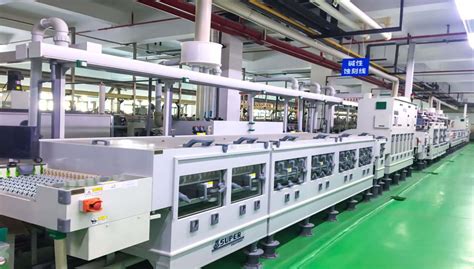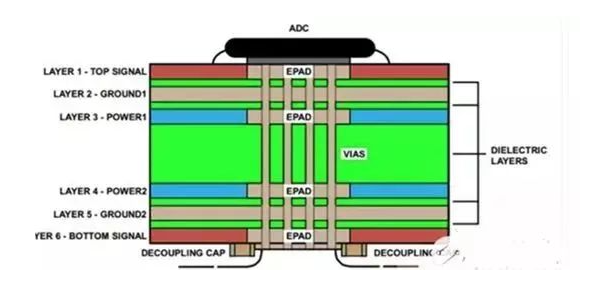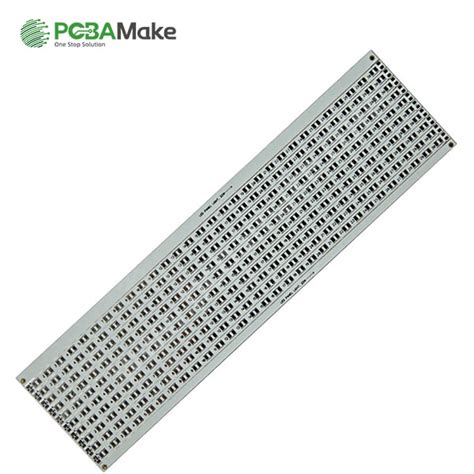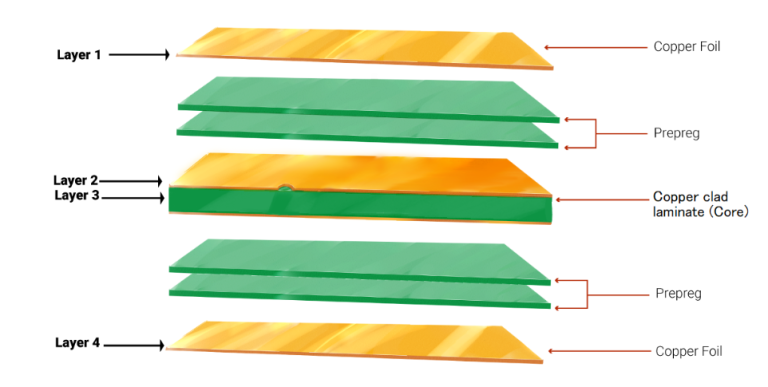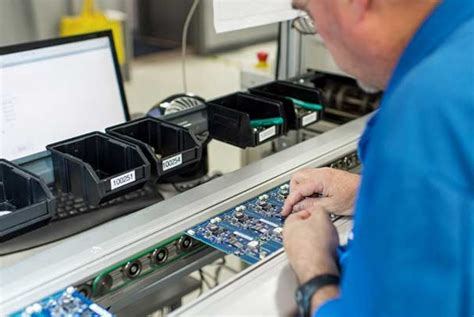PCB Contract Manufacturing: Trusted Partner for Precision Assembly
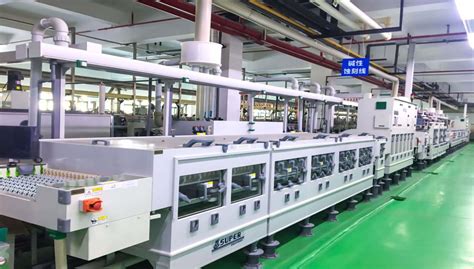
Key Takeaways
When considering PCB manufacturing for your electronics projects, understanding core advantages helps optimize decisions. Partnering with specialized PCB manufacturing companies unlocks access to advanced technologies, economies of scale, and streamlined workflows. Here’s what you need to know:
- Cost Efficiency: Outsourcing reduces upfront investments in equipment and labor. By leveraging established PCB manufacturing business models, you avoid hidden expenses like maintenance or training.
- Expertise On Demand: Skilled engineers handle complex designs, ensuring compliance with industry standards—critical for high-frequency or multi-layer boards.
- Scalability: Adjust production volumes seamlessly, whether prototyping or scaling to mass production, without compromising PCB manufacturing cost structures.
| Factor | In-House Manufacturing | Contract Manufacturing |
|---|---|---|
| Initial Investment | High | Low/None |
| Technical Expertise | Limited | Specialized |
| Lead Time | Variable | Predictable |
For deeper insights, explore this comprehensive guide to PCB assembly. By aligning with the right partner, you gain agility in adapting to market shifts while maintaining quality—a strategic advantage in fast-evolving industries.
PCB Contract Manufacturing Benefits Explained
Partnering with PCB manufacturing companies unlocks strategic advantages for businesses aiming to optimize production workflows while maintaining quality. By outsourcing to specialists, you gain access to advanced fabrication technologies and industry-certified processes that reduce PCB manufacturing cost without compromising precision. This model eliminates the need for heavy capital investments in equipment or skilled labor, allowing you to allocate resources toward core business growth.
Tip: When evaluating partners, prioritize firms with proven expertise in high-mix, low-volume (HMLV) production if your projects require flexible scaling.
Another key benefit lies in supply chain optimization. Established PCB manufacturing business providers often have pre-vetted supplier networks, ensuring faster material sourcing and mitigating risks of component shortages. Their standardized quality control protocols—including automated optical inspection (AOI) and functional testing—also minimize defects, reducing time-to-market for complex assemblies.
For startups or enterprises entering new markets, contract manufacturing offers scalability. Whether prototyping or ramping up to full-scale production, you maintain control over PCB manufacturing timelines while avoiding overproduction risks. Additionally, compliance with international standards (e.g., ISO 9001, IPC-A-610) is inherently managed by your partner, simplifying regulatory adherence for global distribution.
By leveraging these benefits, you position your operations to adapt swiftly to technological shifts or demand fluctuations, ensuring long-term competitiveness in dynamic electronics markets.
Why Partner with PCB Contract Manufacturers
When scaling your electronics production, partnering with specialized PCB manufacturing companies offers strategic advantages. By outsourcing PCB manufacturing, you gain access to advanced fabrication technologies and skilled engineers without the overhead of maintaining in-house facilities. This reduces PCB manufacturing cost significantly, as you avoid upfront investments in equipment, training, and certification.
High-volume demands or complex designs often strain internal teams, but contract manufacturers streamline workflows through economies of scale and proven processes. Their expertise in PCB manufacturing business operations ensures adherence to industry standards like IPC-A-610, minimizing defects and rework. Additionally, they provide flexibility to adapt to design changes or sudden order spikes, allowing you to focus on innovation and market expansion.
Collaborating with trusted partners also mitigates supply chain risks. Established PCB manufacturing firms maintain robust supplier networks, ensuring timely access to quality materials even during shortages. From prototyping to full-scale production, their turnkey solutions cover everything from component sourcing to final testing, accelerating time-to-market while maintaining consistency.
Ultimately, leveraging external expertise transforms PCB manufacturing cost from a fixed burden into a variable expense, aligning expenses with project timelines and business growth objectives.
Turnkey Solutions for Precision PCB Assembly
When scaling your electronics production, partnering with PCB manufacturing companies offering end-to-end turnkey solutions ensures seamless integration from design to delivery. These providers manage every stage—sourcing components, PCB manufacturing, assembly, testing, and logistics—freeing your team to focus on innovation. By leveraging advanced technologies like automated pick-and-place systems and precision soldering, they guarantee consistent quality while optimizing PCB manufacturing cost through bulk material procurement and reduced waste.
A key advantage lies in their ability to handle complex requirements, such as high-density interconnect (HDI) boards or mixed-technology assemblies. Whether you’re prototyping or scaling mass production, PCB manufacturing business experts tailor workflows to meet tight tolerances and industry standards like IPC-A-610. Transparent communication channels ensure real-time updates, minimizing delays and aligning outcomes with your specifications.
Moreover, rigorous quality assurance protocols—including automated optical inspection (AOI) and functional testing—safeguard against defects. This holistic approach not only accelerates time-to-market but also builds long-term reliability into your products, positioning your brand as a leader in competitive markets.
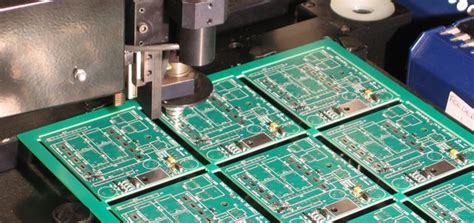
Custom Wiring Harness Assembly Expertise
When your project demands precision in electrical connectivity, PCB manufacturing companies with expertise in custom wiring harness assembly become invaluable. These intricate systems, designed to transmit signals and power across complex circuits, require meticulous planning to ensure compatibility with your PCB manufacturing workflow. Skilled engineers analyze your design specifications, selecting connectors, gauges, and shielding materials that align with performance requirements while optimizing PCB manufacturing cost.
Advanced automated crimping and laser marking technologies enable consistent quality, even for high-density configurations. Partnering with a PCB manufacturing business that specializes in harness assembly ensures seamless integration with your final product—whether it’s aerospace-grade reliability or compact IoT devices. Rigorous testing protocols, including continuity checks and environmental stress simulations, validate durability under real-world conditions.
By leveraging scalable solutions, you avoid over-engineering or material waste, balancing functionality with budget constraints. This expertise not only accelerates time-to-market but also future-proofs your designs, allowing easy upgrades as technology evolves. When every connection matters, aligning with specialists in PCB manufacturing transforms wiring complexity into a competitive advantage.
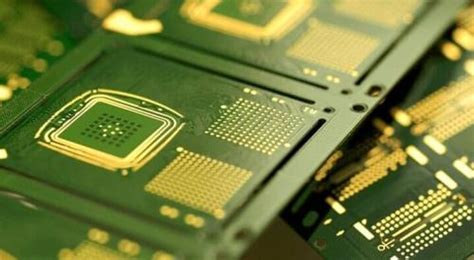
Mechanical Builds and Testing Solutions
When partnering with PCB manufacturing companies, mechanical integration and rigorous testing become critical to ensuring end-product reliability. Modern PCB manufacturing extends beyond circuit board assembly, requiring precise coordination between electronic components and mechanical enclosures. Advanced solutions include custom chassis design, thermal management systems, and vibration-resistant mounting—all tailored to protect sensitive circuitry in demanding environments.
Testing protocols are equally vital. Reputable providers employ automated optical inspection (AOI), in-circuit testing (ICT), and functional validation to identify flaws early, minimizing PCB manufacturing cost overruns. For instance, stress testing under extreme temperatures or humidity ensures your product meets industry standards like IPC-A-610. These steps not only safeguard quality but also streamline compliance, reducing time-to-market.
Scalability is another advantage. Whether prototyping or scaling production, flexible workflows adapt to your PCB manufacturing business needs without compromising precision. By integrating mechanical builds with end-to-end testing, you eliminate bottlenecks and maintain consistency across batches—key for industries like aerospace or medical devices where failure isn’t an option.
Choosing a partner with expertise in both domains ensures your designs transition seamlessly from concept to functional, market-ready products.
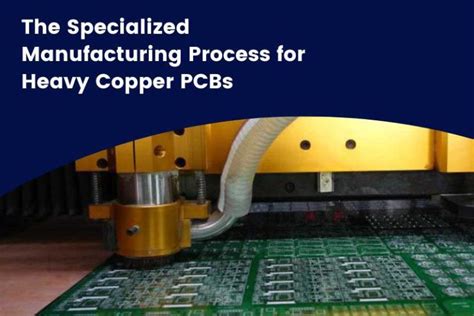
Ensuring Quality in Electronics Assembly
When outsourcing your PCB manufacturing needs, ensuring consistent quality requires rigorous processes. Leading PCB manufacturing companies implement automated optical inspection (AOI) systems to detect microscopic defects in solder joints or component placement, while X-ray testing verifies internal layer integrity in complex multi-board designs. Traceability protocols are critical here—each batch is logged with serialized data, enabling quick root-cause analysis if issues arise.
Balancing PCB manufacturing cost with reliability means selecting partners certified to standards like ISO 9001 and IPC-A-610. These frameworks ensure materials meet thermal and mechanical stress thresholds, reducing field failures. For instance, thermal cycling tests simulate years of operation in hours, validating durability before mass production.
A robust PCB manufacturing business also invests in staff training, ensuring technicians understand evolving assembly techniques for high-density interconnect (HDI) boards or flex circuits. Regular audits of suppliers—from raw PCB fabrication to final testing—prevent quality gaps. By aligning with partners who prioritize process validation, you mitigate risks while scaling production efficiently.
This approach not only safeguards product performance but also strengthens compliance in industries like medical or aerospace, where precision is non-negotiable.
Partnering for Growth in Changing Markets
In today’s volatile electronics landscape, aligning with experienced PCB manufacturing companies ensures your business adapts swiftly to shifting demands. As markets evolve, scalability and cost-efficiency become critical—factors directly influenced by your choice of PCB manufacturing partner. By outsourcing to specialists, you gain access to advanced production capabilities without the overhead of maintaining in-house facilities, effectively managing PCB manufacturing cost while meeting tight deadlines.
A strategic partnership allows you to focus on core competencies like product design or customer engagement, while experts handle complex assembly processes. This collaborative approach is particularly vital when navigating supply chain disruptions or regulatory changes, as established PCB manufacturing business providers often have robust networks and compliance frameworks in place. Their expertise in optimizing material usage and streamlining workflows can translate into faster time-to-market, giving you a competitive edge.
Moreover, trusted partners offer insights into emerging technologies, from high-density interconnect (HDI) boards to sustainable manufacturing practices. By leveraging their technical knowledge, you mitigate risks associated with prototyping or scaling production, ensuring consistent quality even as market conditions fluctuate. In essence, the right collaboration transforms PCB manufacturing from a transactional service into a growth accelerator, enabling your business to pivot confidently amid uncertainty.
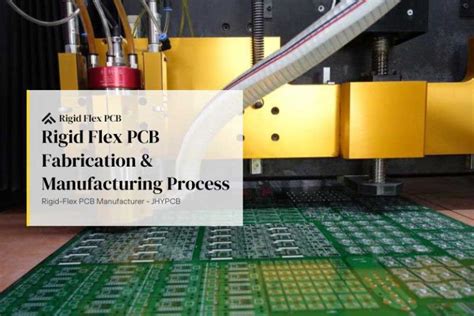
Choosing the Right PCB Manufacturing Partner
Selecting a trusted partner for PCB contract manufacturing requires balancing technical expertise, scalability, and cost efficiency. When evaluating PCB manufacturing companies, prioritize those with proven experience in your industry and certifications like ISO 9001 or IPC-A-610. These standards ensure adherence to rigorous quality controls, which directly impact the reliability of your end product. Transparency in PCB manufacturing cost structures is equally critical—look for detailed breakdowns of material sourcing, labor, and testing fees to avoid hidden expenses.
A partner’s ability to scale with your PCB manufacturing business can determine long-term success. Assess their capacity for high-volume production, flexibility in handling design revisions, and compatibility with your supply chain timelines. Advanced PCB manufacturing providers often integrate design-for-manufacturability (DFM) feedback early in the process, minimizing delays and rework. Additionally, consider their testing protocols—automated optical inspection (AOI) and functional testing are non-negotiable for precision assembly.
Finally, evaluate their communication practices. A collaborative partner aligns with your goals, offering real-time updates and proactive problem-solving. By focusing on these factors, you secure a relationship that drives innovation while maintaining cost-efficiency and quality.
Conclusion
When evaluating PCB manufacturing partnerships, the right collaborator becomes a cornerstone of your product’s success. By aligning with experienced PCB manufacturing companies, you gain access to specialized expertise that optimizes PCB manufacturing cost while maintaining rigorous quality standards. These partners deliver scalable solutions—from prototyping to full-scale production—ensuring your PCB manufacturing business remains agile in dynamic markets.
A trusted partner not only handles precision assembly but also integrates end-to-end testing and custom wiring seamlessly into their workflows. This reduces supply chain complexity, allowing you to focus on innovation rather than operational hurdles. As demand evolves, their ability to balance cost-efficiency with technical precision ensures your products meet both performance expectations and regulatory requirements.
Ultimately, the value of a PCB contract manufacturing partnership lies in its capacity to future-proof your operations. By prioritizing transparency, adaptability, and shared goals, you position your business to thrive amid technological shifts and competitive pressures. The right collaboration isn’t just about assembly—it’s about building a foundation for sustained growth.
FAQs
How does partnering with PCB manufacturing companies affect production timelines?
By leveraging established workflows and specialized equipment, trusted partners can often accelerate your project cycles while maintaining precision in assembly. Their expertise in PCB manufacturing reduces prototyping iterations, ensuring faster time-to-market.
What factors influence PCB manufacturing cost when outsourcing?
Key variables include component complexity, order volume, and testing requirements. Reputable PCB manufacturing business providers offer transparent pricing models, often achieving cost-efficiency through bulk material sourcing and optimized assembly processes.
Can contract manufacturers handle both prototyping and large-scale PCB manufacturing?
Yes, most full-service partners support everything from low-volume validation builds to high-volume production. This scalability ensures consistency across batches while mitigating risks in your PCB manufacturing business expansion.
How do you ensure quality control with offshore PCB manufacturing companies?
Top-tier providers implement ISO-certified processes, automated optical inspection (AOI), and functional testing protocols. Regular audits and real-time reporting maintain accountability, aligning with your PCB manufacturing quality standards.
What certifications should you verify when selecting PCB manufacturing partners?
Prioritize ISO 9001, IPC-A-610, and UL listings. These validate adherence to industry benchmarks for reliability, particularly in aerospace, medical, or automotive PCB manufacturing applications.
Ready to Optimize Your Electronics Production?
Streamline your PCB manufacturing cost and timelines with tailored solutions. Please click here to explore how our expertise aligns with your project requirements.

